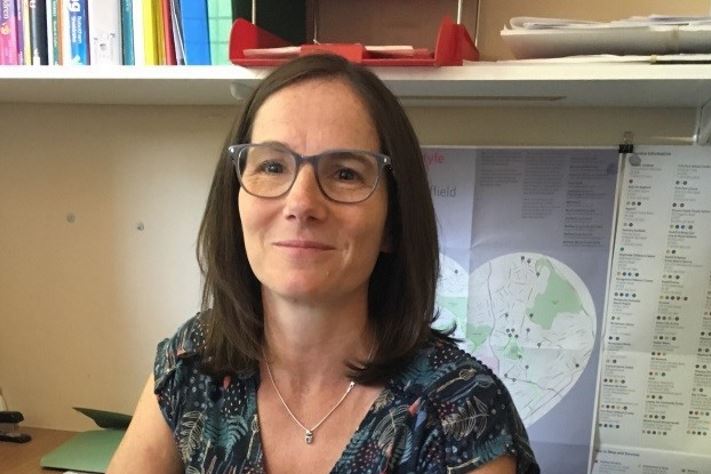22nd August 2018
A blog by Louise Wolstenholme and Alison Caden, health visitors at Sheffield Children’s NHS Foundation Trust, on their work with the Roma community.

Louise Wolstenholme
We are very pleased to have been asked to speak at the forthcoming Maternal Mental Health Alliance annual conference on Diversity: Understanding and Reaching the Missing Families. Topics covered include culture and migration, women with learning disabilities, women in the criminal justice system, military families, Gypsy, Roma and Traveller families and more. The conference is a great opportunity for iHV Perinatal Mental Health Champions – and others with a special interest in this area – to broaden and deepen their understanding of this issue.
Despite austerity, health visitors nationally are finding ways to support mums with perinatal mental illness and helping them to access the support they need from a system that too often fails to reach out to women living on the margins.
Our experience of reaching those ‘missing families’ came with working with Sheffield’s 6000-strong Roma community, many of whom came from Slovakia in 2007-8 after EU accession. Stigmatization, discrimination and the desire to find a better life led many to come to the UK. While employment, housing and buying food are priorities for newly arrived families, health and education are initially neglected.
The community usually live within extended supportive families; they start out on parenthood from a young age and can traditionally have large families. As health visitors, we are universally welcomed into their homes and do work with the families to support them with a variety of health issues. It is, however, our understanding that health in Slovakia is something that ‘you do something about when illness strikes’. The preventative aspect of health is not something that we think that the families have had much experience of and, consequently, women are unused to asking for the health services they may benefit from.
As the community becomes more stable and settled in Sheffield, we want to help them not just survive but to survive well and thrive. We particularly want to reach out to mums in the perinatal period, but are struggling to carry out effective assessments. Whenever we meet with women in their homes they are in company of an audience of curious cousins, parents, children and passing neighbours. Then there is language – generally dads speak Slovakian and Romani but occasionally mums speak only Romani – so translation can be a four-way affair with the use of an interpreter – not easy if you are trying to talk about intimate health issues. The youngest mums may have been in school here and speak English (and Romani at home) but we can struggle to explain concepts we feel we want to explore with them (in addition, Romani is not a written language).
Lots of us had got to know the families on an individual basis but we wanted them to know us as a service. One of the first steps was to work with local partners and make ourselves more visible at a community level. We forged relationships with the local primary school and attended their parents’ evening to raise our profile and let the community know who we are.
We realised that our efforts needed to be visual, friendly and ‘normalise’ access to health care. We hit on the idea of a health café situated at the heart of the community in Fir Vale Oasis Academy – open at school pick-up time so women could drop in for their antenatal or baby checks and we could use the opportunity to pick up on any mental health concerns too.
Establishing a Roma-interest group was pivotal in designing the health café. Our planning began with gathering data from parents in the community at the school about the health topics that matter to them. Over 100 families told us their concerns about their children – diet came top, closely followed by dental and emotional wellbeing.
The health café was launched in April and we have had consistent attendance from the community since we started. Some families receive 1:1 consultations and many more attend to discuss our weekly health briefings. It’s a work in progress, but our initial aim of being visible and having some engagement has been achieved. A stall at the summer school fair was great fun and provided a good opportunity to again talk to parents about our service. Our next step will be to engage with very young mothers through the health café to ensure that their perinatal mental health needs are met.
Reaching out to a stigmatized community and building trust takes time. If we had a tag line, it would be something like ‘We are interested, we care and we can make a difference’. Breaking down the barriers to accessing perinatal health is so important and, thanks to our efforts at community engagement, we are getting there.
Louise Wolstenholme, Health Visitor, Research lead and PhD student
Alison Caden, Health Visitor
Sheffield Children’s NHS Foundation Trust
Louise Wolstenholme & Alison Caden are speaking at the MMHA Annual Conference 2018 Diversity : Understanding and Reaching the Missing Families. Buy your ticket here. Do you have research or a service you want to share? Submit a poster here.






